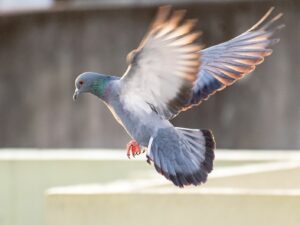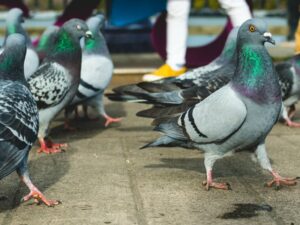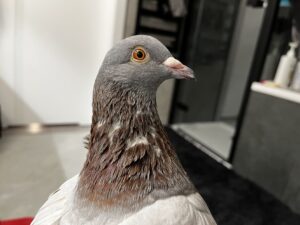Pigeon droppings can be found in urban areas and can pose health risks to humans through the inhalation of contaminated dust or soil.
These risks include diseases such as histoplasmosis and cryptococcosis, which can cause serious illness or death.
It is important for pigeon owners and those who come into contact with pigeon poop to be aware of these risks and take precautions to protect themselves.
As a pigeon owner, it is your responsibility to ensure the health and well-being of your birds, including taking steps to prevent the buildup of pigeon poop and properly disposing of it to reduce the risk of disease transmission.
Understanding these potential risks can help you protect yourself and your birds.
JUMP TO:
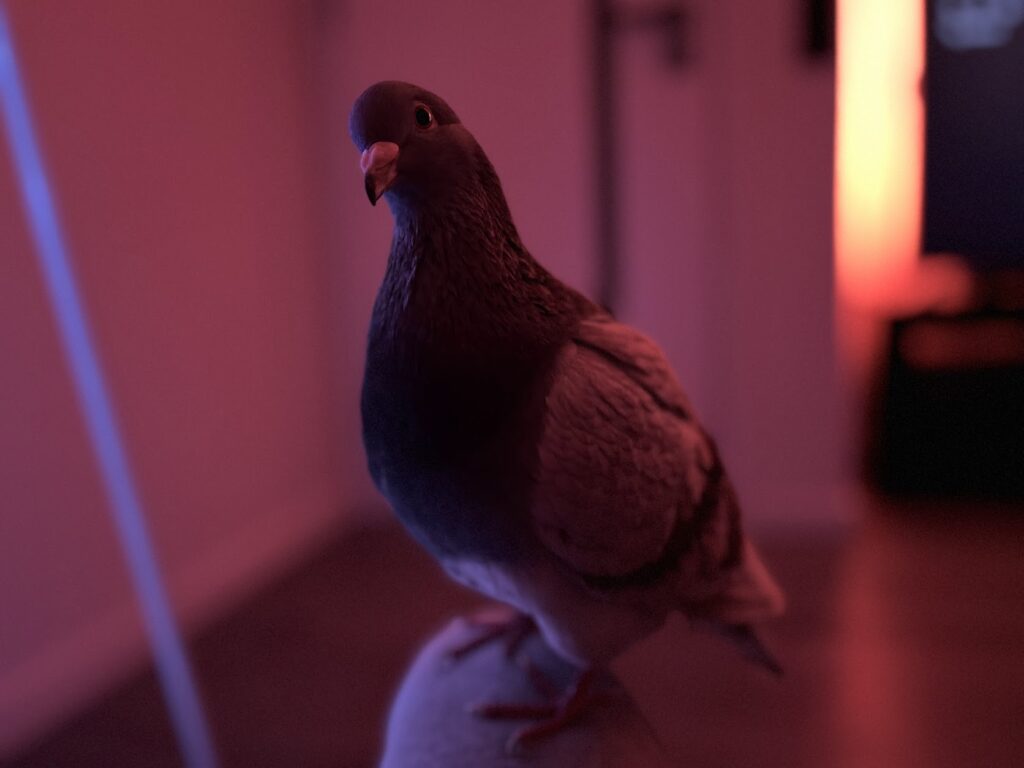
Can pigeon poop kill you? 10-second summary
- Poop from all animals, including pigeons, can potentially contain harmful bacteria and pathogens that can cause serious illness in humans.
- It is important to take proper precautions to avoid inhaling or coming into contact with any animal feces, as the risk of infection or other health problems is generally higher for individuals with compromised immune systems or respiratory problems, and for those who work in close proximity to large numbers of animals or who are exposed to animal feces on a regular basis.
- Proper hygiene measures, such as washing hands and wearing protective gear, can help to reduce the risk of infection or other health problems from animal feces.
- The risk of contracting a serious illness from pigeon droppings is relatively low for most people, as long as proper precautions are taken to avoid inhaling or coming into contact with the droppings.
- Overall, while pigeon droppings can potentially be harmful, the risk of serious illness or death from these substances is generally low for most people.
Check these:
Can pigeon poop kill you? Details
It is common for people to have a negative perception of pigeon poop and exaggerate the potential health risks it poses.
However, note that pigeon poop is not significantly more harmful than the poop of any other animal.
While it is true that pigeon poop can transmit diseases to humans through the inhalation of contaminated dust or soil, the risk of transmission is relatively low and can be easily mitigated by taking appropriate precautions.
Pigeon poop, like the feces of any other animal, can contain bacteria and parasites that can cause illness. However, the risk of transmission is generally low and can be further reduced through proper hygiene practices, such as washing hands and wearing protective gear when cleaning up pigeon poop.
It is important to have a balanced perspective on the potential health risks of pigeon poop and not to exaggerate or overreact.
While it is important to be aware of these risks and take appropriate precautions, it is also important to recognize that pigeon poop is not significantly more harmful than the feces of other animals and should not be feared excessively.
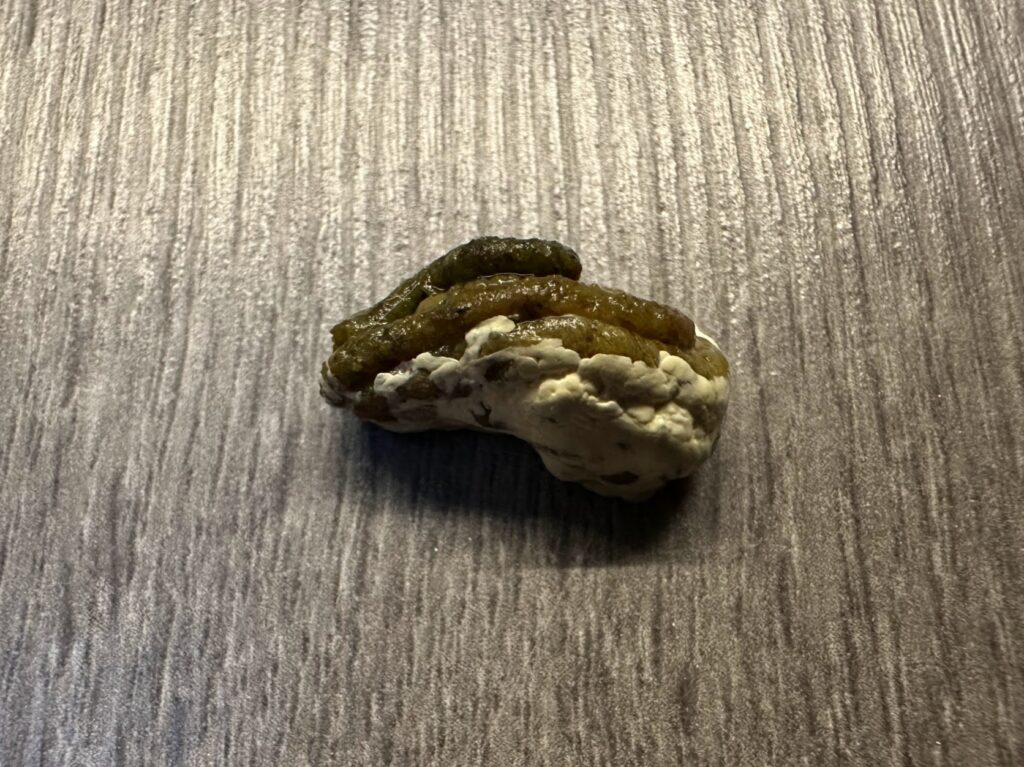
Pigeon poop in light of science
There have been numerous studies conducted on the potential health risks associated with pigeon droppings. Some of the findings of these studies include:
- A study published in the Journal of Environmental Health found that pigeon droppings can contain a variety of bacterial and fungal pathogens, including Salmonella and Escherichia coli, which can cause serious infections in humans.
- A study published in the journal Clinical Microbiology Reviews found that pigeon droppings can be a source of fungal infections, such as histoplasmosis and cryptococcosis, which can cause serious respiratory problems in humans.
- A study published in the journal Environmental Health Perspectives found that pigeon droppings can contain high levels of heavy metals, such as lead and zinc, which can be harmful if inhaled or ingested.
- A study published in the journal Environmental Pollution found that pigeon droppings can contribute to the contamination of soil and water, which can have negative impacts on the environment and the health of humans and other animals.
Overall, these studies highlight the potential health risks associated with pigeon droppings and the importance of taking precautions to prevent exposure to these substances.
Check other articles about pigeon poop:
Can pigeon poop transmit diseases?
Pigeon poop, also known as pigeon droppings, can contain a variety of diseases that can be transmitted to humans. Two such diseases are histoplasmosis and cryptococcosis.
- Histoplasmosis is a fungal infection that can be transmitted through the inhalation of fungal spores found in pigeon droppings. The symptoms of histoplasmosis include fever, cough, and difficulty breathing, and it can range in severity from mild to severe. In severe cases, histoplasmosis can lead to serious complications such as pneumonia or even death.
- Cryptococcosis is another fungal infection that can be transmitted through pigeon droppings. This infection can cause a variety of symptoms, including fever, headache, and skin lesions. It can also lead to serious complications, such as meningitis, if left untreated.
- In addition to these diseases, pigeon droppings can also transmit other infections, such as salmonella and E. coli, through direct contact or ingestion.
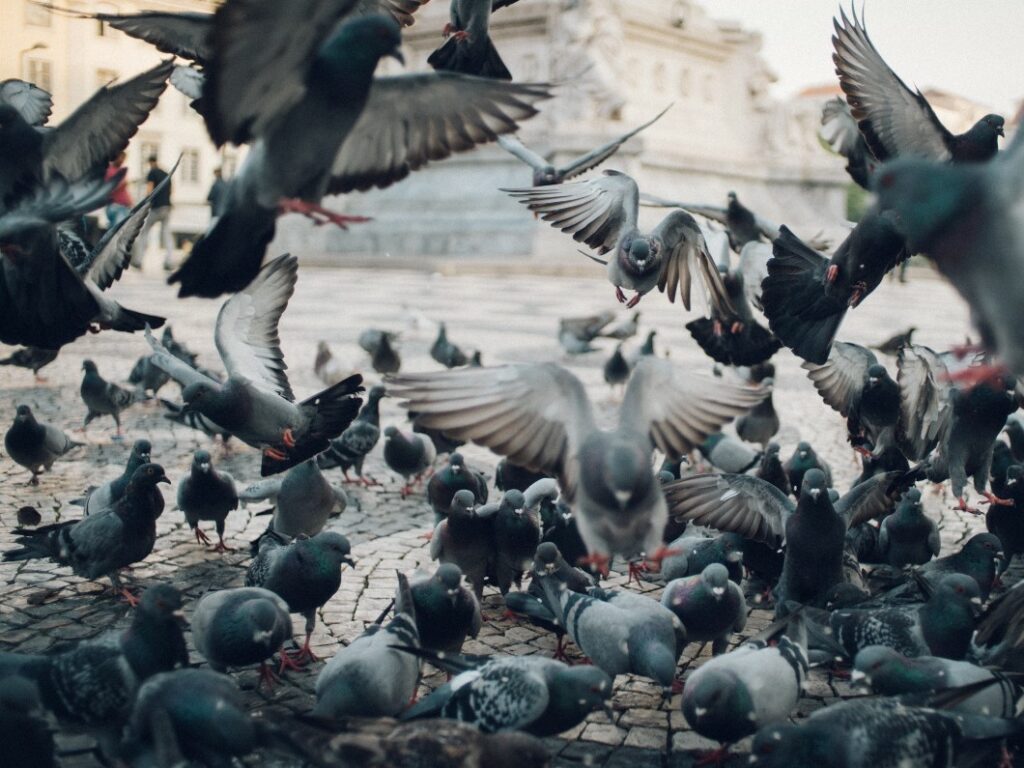
How to protect yourself from pigeon poop
As a pigeon owner, you should regularly clean up your birds’ droppings to prevent the buildup of contaminated dust.
By regularly removing droppings, you can help to reduce the risk of infection and other health problems.
To properly dispose of pigeon poop, it is important to follow proper safety guidelines like:
- This includes washing your hands thoroughly after handling the droppings, as well as wearing protective gear such as gloves and a face mask to prevent inhaling any potentially harmful particles.
- The droppings should be placed in a sealed bag or container and disposed of in a trash bin.
How to prevent pigeon poop from accumulating
There are also several steps you can take to prevent droppings from accumulating in the first place.
- One option is to use roost barriers, which are physical barriers that prevent your birds from roosting in certain areas. These can be effective in deterring your pigeons from roosting on ledges, window sills, and other areas where droppings can accumulate.
- Another option is to install netting over areas where your pigeons tend to roost. This can help to prevent them from accessing these areas, which can reduce the amount of droppings that accumulate.
By following proper safety guidelines and using effective prevention methods, you can help to reduce the risk of infection and other health problems associated with pigeon poop.
Can pet pigeon poop kill you?
As a pigeon owner, I have often come into contact with my pet pigeon Gerard’s droppings and have not experienced any health issues as a result.
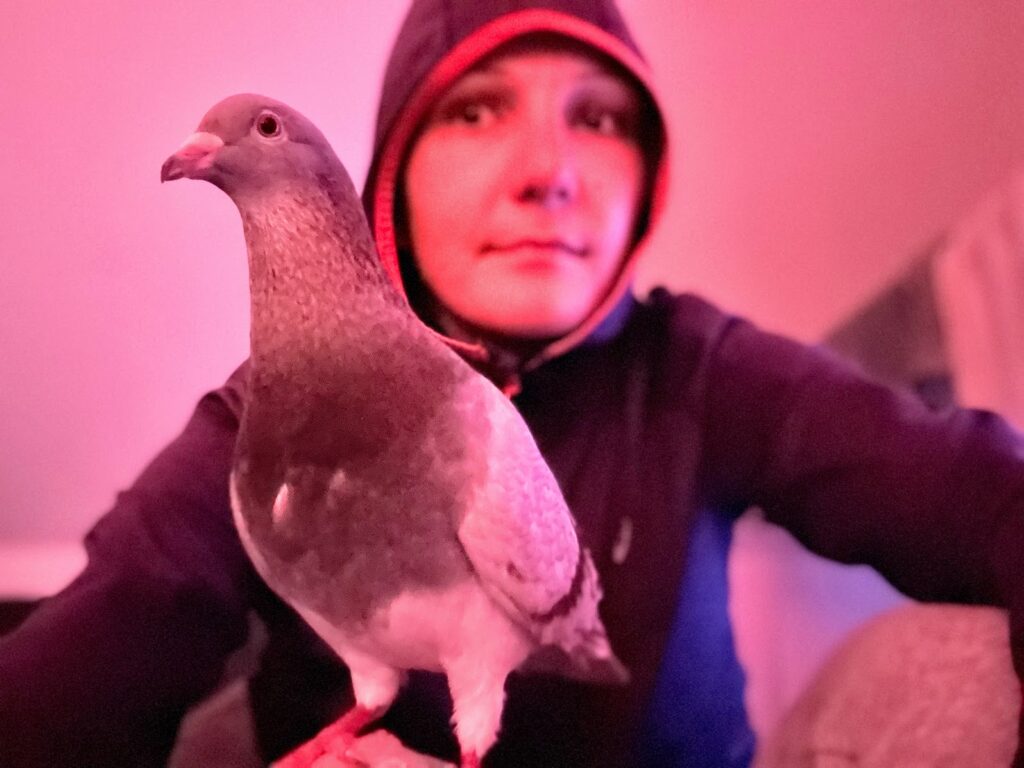
In general, the poop of pet pigeons kept in a home environment is usually safe, as long as proper hygiene measures are followed.
This includes washing your hands after handling the droppings and avoiding coming into contact with the droppings as much as possible.
The risk of infection or other health problems from pigeon droppings may be higher for individuals with compromised immune systems or respiratory problems.
Overall, as a responsible pigeon owner, you should take the necessary precautions to protect yourself and your birds from the potential dangers of pigeon droppings.
Check this: Are Pigeons Good Pets?
Frequently asked questions about pigeon poop
Is pigeon poop harmful?
Pigeon droppings may contain bacteria and pathogens that can cause illness in humans. People with compromised immune systems or respiratory problems or those who are frequently exposed to them should precautions when handling or coming into contact with these droppings. Washing hands and wearing protective gear can help reduce the risk of infection.
How can I prevent pigeon droppings from accumulating?
Use roost barriers, which are physical barriers that prevent pigeons from roosting in certain areas like on ledges, window sills, and other areas where droppings can accumulate.
Install netting over areas where pigeons tend to roost. This can help to prevent them from accessing these areas, which can reduce the amount of droppings that accumulate.
How can I safely clean up pigeon droppings?
Follow proper safety guidelines, such as washing your hands thoroughly after handling the droppings and wearing protective gear such as gloves and a face mask. Place the droppings in a sealed bag or container and disposed of in a trash bin. Use proper cleaning methods, such as diluting the droppings with water and using a disinfectant, to help prevent the spread of any harmful bacteria or pathogens.
Can pigeon droppings transmit diseases to humans?
Yes, pigeon droppings can potentially transmit diseases to humans. Pigeon droppings can contain a variety of bacterial and fungal pathogens, such as Salmonella and Escherichia coli, which can cause serious infections in humans. Pigeon droppings can also be a source of fungal infections, such as histoplasmosis and cryptococcosis, which can cause serious respiratory problems in humans.
Final thoughts on pigeon poop
In conclusion, pigeon droppings can potentially contain harmful bacteria and pathogens that can cause serious illness in humans.
As a pigeon owner, you need to take the necessary precautions to protect yourself and your birds from these potential dangers.
Following proper safety guidelines and using effective prevention methods will help to reduce the risk of infection and other health problems associated with pigeon poop.
Make sure to take these steps to protect yourself and your birds from the potential dangers of pigeon poop and to ensure the health and well-being of all involved.


